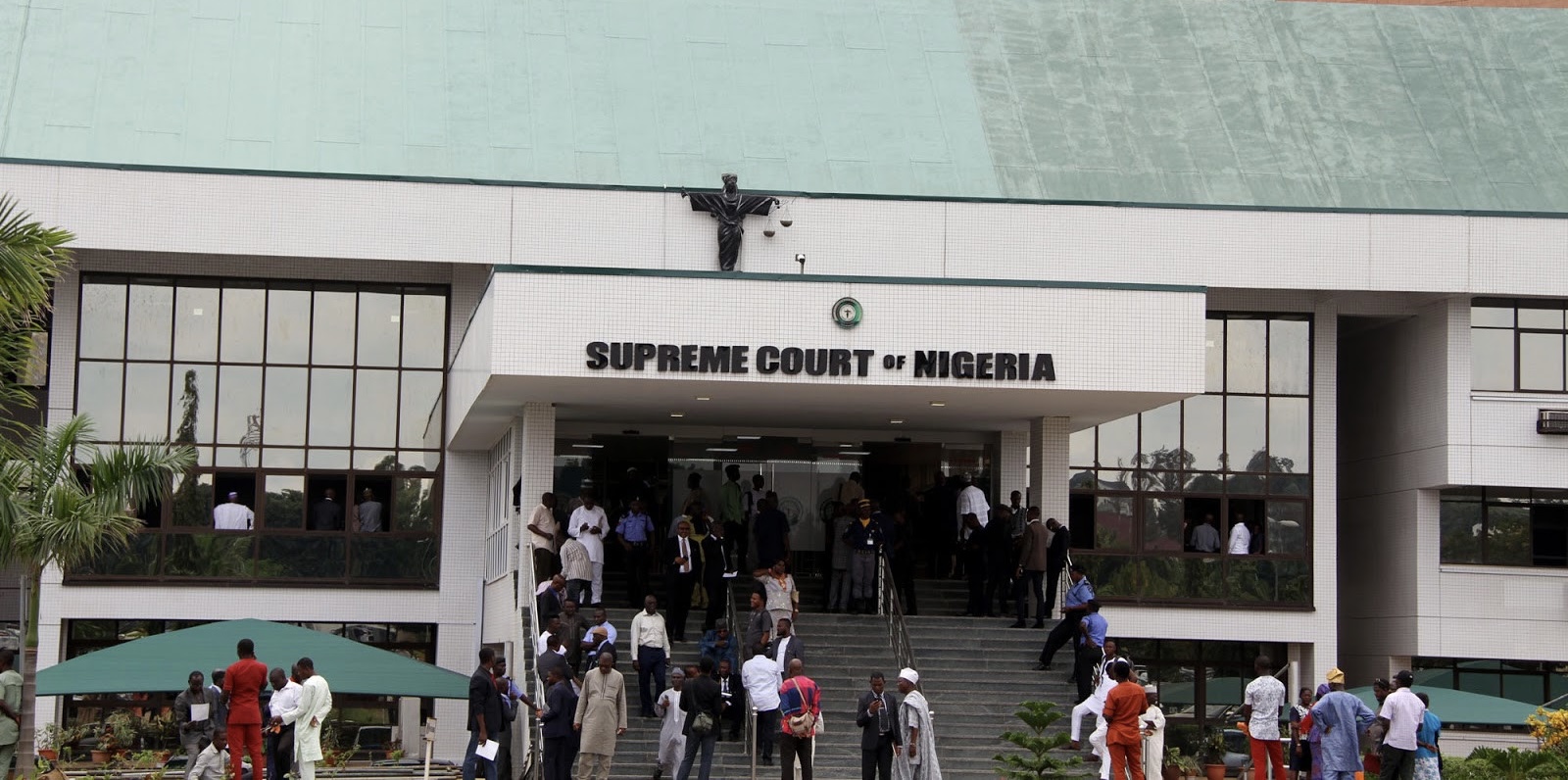Supreme Court Declares Buhari’s Executive Order 10 Unconstitutional, Dismisses Governors’ N66bn Suit
 Supreme Court has declared that Executive Order 10 (EO10) signed by President Muhammadu Buhari on financial autonomy for the judiciary and legislature is unlawful and unconstitutional.
Supreme Court has declared that Executive Order 10 (EO10) signed by President Muhammadu Buhari on financial autonomy for the judiciary and legislature is unlawful and unconstitutional.
A seven-member panel of justices of the Supreme Court in a split decision of six to one on Friday held that the president overreached his constitutional powers in issuing the EO10.
Six out of the seven members of the panel nullified and set aside the EO10, while one justice delivered a dissenting judgment.
The apex court’s lead judgment, which was prepared by Justice Musa Dattijo Muhammed and read by Justice Centus Nweze, held that the responsibility of funding of state courts lies squarely with the state governments.
President Buhari had in the Executive Order he signed on May 22, 2020, made it mandatory for all states to include allocations of both the Legislature and the Judiciary in their Appropriation Laws, in compliance with section 121(3) of the Constitution of the Federal Republic of Nigeria, 1999 (as Amended).
However in the suit marked SC/655/2020, which was filed on September 17, 2020, the 36 States, through their Attorneys-General, queried the legality of Presidential Executive Order 10.
The apex court also dismissed the N66 billion suit filed by the state governors against the Federal Government.
The 36 states governors had in the suit sought an order of the court to compel the Federal Government to take up funding of capital projects for State High Courts, Sharia Court of Appeal, and Customary Court of Appeal.
They had also applied for an order of the apex court to compel the Federal Government to pay them N66 billion naira, being an amount they have so far spent on capital projects for the three courts.
The governors informed the apex court that the three courts were the courts of the Federation and as such, the funding of their capital project should flow from the Consolidated Revenue Fund of the Federation.
President Muhammadu Buhari signed the EO10 into law in May 2020 and set up a committee to fashion out strategies and modalities for the implementation of financial autonomy for the State Legislature and State Judiciary.
A statement from the Office of the Attorney-General of the Federation had explained that the President’s action was in compliance with section 121(3) of the Constitution, taking into considerations all other applicable laws, instruments, conventions, and regulations, which provide for financial autonomy at the state tier of government.
It stated that the implementation of financial autonomy of the State Legislature and Judiciary would strengthen the institutions at the state level and make them more independent and accountable in line with the tenets of democracy as enshrined by the Constitution.
The statement issued on May 22, 2020 said;
The President signed the Executive Order number 10 into law based on the power vested in him as the President of the Federal Republic of Nigeria under Section 5 of the Constitution of the Federal Republic of Nigeria 1999 (as Amended), which extends to the execution and maintenance of the Constitution, laws made by the National Assembly (including but not limited to Section 121(3) of the 1999 Constitution (as amended), which guarantee financial autonomy of the State Legislature and State Judiciary.
The EO10 provides among others that the Accountant-General of the Federation shall authorise the deduction from source in the course of Federation Accounts Allocation from the money allocated to any state that fails to release allocation meant for the State Legislature and Judiciary, in line with the financial autonomy guaranteed by Section 121(3) of the Constitution.
This move was, however, rejected by the state governors who demanded the immediate dissolution of the Presidential Implementation Committee and challenged the EO10 at the apex court.
